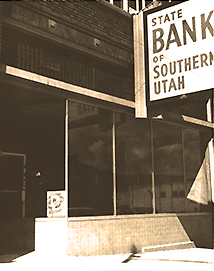Possible Reasons for a Missing Tax Refund
Important Birthdays to Remember
Courtesy of SBSU Financial Services
Unforgettable Birthdays
Birthdays may seem less important as you grow older. They may not offer the impact of watershed moments, such as getting a driver’s license at 16 and voting at 18. But beginning at age 59, there are several key birthdays that can affect your tax situation, health-care eligibility, and retirement benefits.
59½ — You can start taking penalty-free withdrawals from IRAs and qualified retirement plans, provided certain conditions are met. Ordinary income taxes generally (more…)
About Us

Hometown banking was established in southern Utah with the opening of State Bank of Southern Utah in 1957.
Hometown banking is important because people who live and work in southern Utah make the decisions. Bank employees and officers understand the banking needs of area residents because they are affected by the same economic climate. Find out what hundreds already know - hometown banking is better.
Archives
- June 2015
- May 2015
- January 2015
- December 2014
- October 2014
- September 2014
- July 2014
- June 2014
- May 2014
- April 2014
- March 2014
- February 2014
- January 2014
- November 2013
- October 2013
- August 2013
- July 2013
- June 2013
- March 2013
- February 2013
- January 2013
- December 2012
- November 2012
- October 2012
- September 2012
- August 2012
- July 2012





Please re-check the account number listed on your tax return or stored in your tax software. Make sure that the bank account is OPEN and ACTIVE (not dormant or closed) and that you have checked the appropriate box on your return, checking or savings.